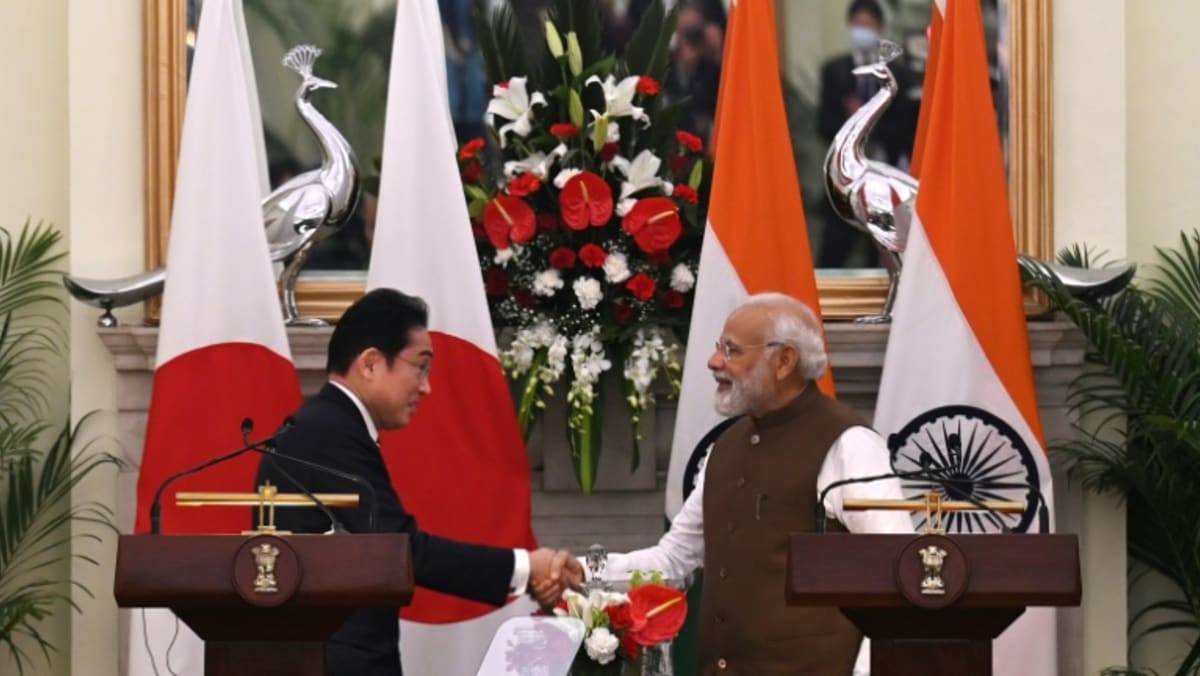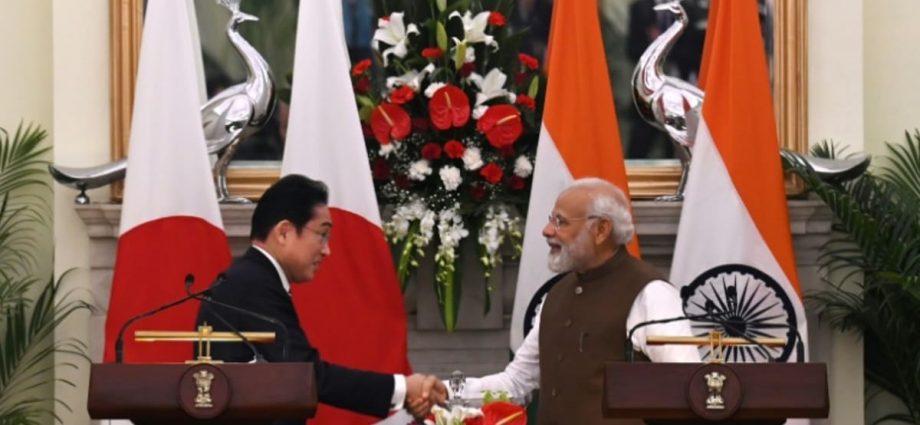
NEW DELHI: Japanese Prime Minister Fumio Kishida on Monday (Mar 20) called India vital to ensuring a free and open Indo-Pacific after talks with his counterpart touching on shared concerns about China.
Speaking in New Delhi after meeting Prime Minister Narendra Modi, Kishida laid out plans for billions of dollars in investments in infrastructure and other sectors across the region.
“I have described Japan’s plan to develop a free and open Indo-Pacific. To achieve this, India is an indispensable partner,” Kishida said.
“Japan will strengthen coordination with the US, Australia, UK, Canada, Europe and elsewhere. Of course, India is indispensable.”
India, Japan, the United States and Australia make up the Quad alliance, which positions itself as a bulwark against China’s growing assertiveness in the Asia-Pacific region under President Xi Jinping.
India’s relations with China nosedived after 20 Indian troops died in clashes with Chinese soldiers in 2020 on their disputed Himalayan frontier.
In December, Japan officially pacifist since 1945, revamped its defence policy after warning that China, with which it has a fraught history, posed the “greatest security challenge ever”.
Japan is also boosting military spending and is carrying out more joint exercises with other countries, including India, which has also deepened defence cooperation with Western nations.
QUAD SUMMIT
In June, Kishida had said Japan would help train 800 maritime security personnel and provide at least US$2 billion to other countries to buy patrol boats and build up infrastructure as part of the Free and Open Indo-Pacific (FOIP) strategy.
Kishida said on Monday that FOIP’s scope would expand to include new areas like climate change, cybersecurity and food security.
It would also direct public and private capital worth US$75 billion towards Indo-Pacific infrastructure by 2030.
Kishida’s visit came less than a fortnight after Modi hosted his Australian counterpart Anthony Albanese for talks that also covered worries about China.
Albanese, who is also forging closer ties with the United States and Britain under the separate so-called AUKUS alliance, is due to host all Quad leaders in May.
The Quad members deny hostile intentions and stress that they are not a military alliance, but China has described the grouping as an attempt to encircle it.

